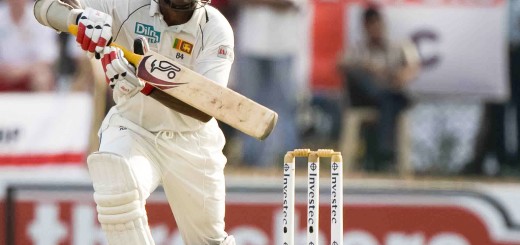2nd Test, Day 2: Michael Clarke transforms Australia’s mood with toss of a coin

Mitchell Johnson’s early destructiveness with the ball yesterday was a classic example of the psychology of sport. The way the mind works to elevate or inhibit performance. Sportsmen perpetually seek the ‘five percenters’, those little factors that separate success from failure, and here they were provided by the toss of a coin. Luck, in other words. Michael Clarke’s changed call of ‘heads’ (he usually calls ‘tails’) was all Johnson needed to make an impact in the series.
What a change from five days ago. The train from Cardiff to London last Sunday was loaded with England supporters in joyful rendition of a familiar song: ‘he bowls to the left, he bowls to the right, Mitchell Johnson, your bowling is…’ It reflected Johnson’s figures from the combined England innings in the first Investec test which read 41-5-180-2.
It rekindled memories of Johnson’s wayward performance in the Lord’s test of 2009 when the unique geography of the ground and the extra pressure of a Lord’s test caused his radar to go totally on the blink. The Lord’s slope enhances good bowling and exacerbates bad. Then England won the toss and batted and, being entrusted with the new ball, Johnson’s bowling was all over the place. The England batsmen helped themselves to six an over.
There was one major difference this time. Johnson’s figures at Cardiff did not do him justice. Australia lost the toss and were consigned to field first on a featherbed. Johnson ran in willingly persistently, optimistically, ball after ball, over after over, sustaining decent pace and a consistent line. The first day pitch had nothing in it for him. There was no pace or bounce, English bats were broad and edges didn’t carry. The surface drew his sting. He was still wicketless when he had conceded 100, but he wasn’t the uncertain, fragile individual of 2009 and doffed his cap to the ironic applause. He didn’t give up and finally took a wicket (Ian Bell) in his 36th over of the match. He deserved better.
Here at Lord’s he has had the luxury of putting his feet up for the best part of a day and a half – he was often visible, reclining barefoot on the Australian balcony. It is what all bowlers crave – rest and runs on the board. In this test Johnson has had plenty of both.
Added to that, Michael Clarke spares him the stress of bowling with the new (Dukes) ball that amplifies nervousness and apprehension. Once the initial lacquer is worn off it is easier to control. He rumbled in to bowl the ninth over of the England innings. They were already one wicket down. Instead of worrying about the slope, he appreciated it. He knew it gave him something extra on another relatively lifeless pitch.
Hi first ball was full and on the stumps (as opposed to in 2009 when it was a juicy half volley on Alastair Cook’s pads that he put away for four.) Gary Ballance jammed the bat down on it and it also went to the boundary, but it was a demanding delivery, and just a hint of movement would have made it an entirely different proposition. That materialized with his third ball which shaped dlwn the slope and burst low past Balance’s tentative prod and clattered into his off-stump.
Bell nurdled a single from his first ball and Cook negotiated the rest of the over. Bell was then dismissed next ball (by Josh Hazlewood) which brought Joe Root to the crease. He got off strike immediately meaning Johnson had him for the start of his next over.
The man of the match from Cardiff is the wicket the Australian’s most want. They saw how influential he was in Cardiff. Cook is hard to get out but controllable. Root can influence the momentum of a match. They would have talked longer about how to get him out more than any other.
The plan was clear, after the first ball from Johnson, a fizzing bouncer which Root hurridly ducked. The second also made him smell the leather. He followed it up with the perfect inducement, still quick but slightly wider, slightly less short, enticing the instinctive flash. The edge was grazed and Australia had their man. In nine balls Johnson had the same number of wickets it had taken him 40 overs to achieve in Cardiff. And all because of the captain’s change of mind at the toss.













